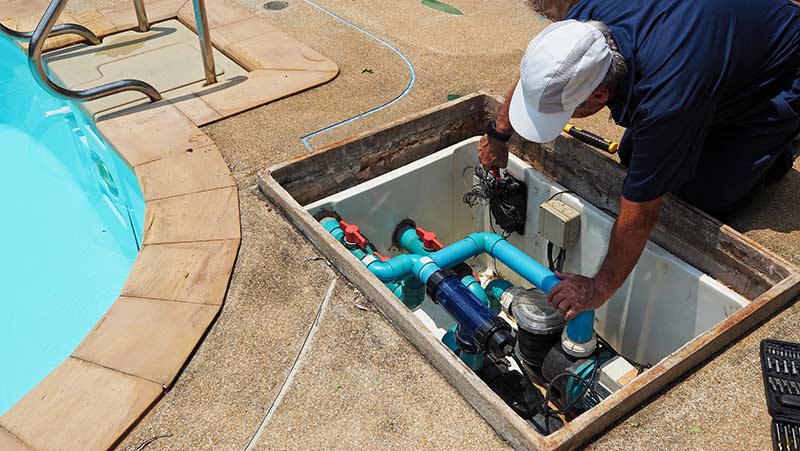
Introduction: Understanding In-Ground Pool Repair
In-ground pools are luxurious additions to any property, providing a space for relaxation, exercise, and entertainment In-ground pool repair . However, over time, these pools may require repair due to wear and tear, damage, or aging. In this comprehensive guide, we’ll explore the essential aspects of in-ground pool repair, from identifying common issues to implementing effective solutions.
Identifying Pool Problems
Leak Detection
One of the most common issues with in-ground pools is leaks. Detecting leaks early is crucial to prevent further damage and water loss. Signs of a leak include a noticeable drop in water level, wet spots around the pool, or unusually high water bills. Professional leak detection services can accurately pinpoint the source of the leak, whether it’s in the pool structure, plumbing, or fittings.
Cracks and Damage
Cracks in the pool’s structure can compromise its integrity and safety. These cracks may develop due to ground movement, temperature changes, or improper installation. Regular inspections can help identify small cracks before they escalate into more significant problems. Repairing cracks typically involves patching or sealing the affected areas with specialized materials.
Equipment Malfunctions
In-ground pools rely on various equipment, such as pumps, filters, and heaters, to maintain water quality and circulation. Malfunctions in these components can lead to issues like poor water circulation, inadequate filtration, or inconsistent heating. Regular maintenance and prompt repairs are essential to keep the pool equipment functioning correctly.
Common Repair Solutions
Patching and Resurfacing
For minor cracks and surface damage, patching and resurfacing are effective solutions. Patching involves filling cracks and holes with a waterproof sealant or epoxy resin to prevent further deterioration. Resurfacing the pool involves applying a new layer of finish, such as plaster, fiberglass, or pebble aggregate, to restore its appearance and structural integrity.
Plumbing Repairs
Leaking pipes or fittings can disrupt the water flow and pressure in the pool’s plumbing system. Professional plumbers can inspect the pipes, valves, and fittings for leaks and perform necessary repairs or replacements. Properly functioning plumbing is essential for maintaining water circulation and chemical balance in the pool.
Structural Repairs
Significant structural damage, such as extensive cracking or deterioration of the pool shell, may require more extensive repairs. Structural repairs often involve reinforcing the affected areas with additional materials or rebuilding sections of the pool. These repairs should be carried out by experienced professionals to ensure the pool’s safety and longevity.
Preventive Maintenance Tips
Regular Inspections
Routine inspections of the pool’s structure, equipment, and plumbing can help identify potential issues early on. Inspect the pool for signs of cracks, leaks, or damage, and check the equipment for proper functioning. Addressing minor problems promptly can prevent them from escalating into costly repairs.
Maintain Water Chemistry
Proper water chemistry is essential for preserving the pool’s surfaces, equipment, and overall health. Regularly test the water for pH, chlorine, alkalinity, and other chemical levels, and adjust them as needed. Maintaining balanced water chemistry can prevent corrosion, scale buildup, and algae growth.
Winterization
Properly winterizing the pool before the cold season can prevent damage from freezing temperatures and harsh weather conditions. Drain the water to the appropriate level, remove debris, and protect the equipment from freezing. Consider covering the pool with a durable winter cover to shield it from debris and UV rays.
Conclusion
In-ground pool repair is a vital aspect of maintaining a safe, functional, and enjoyable swimming environment. By identifying common issues early, implementing effective repair solutions, and practicing preventive maintenance, pool owners can prolong the lifespan of their investment and ensure years of aquatic enjoyment. Whether it’s patching cracks, repairing plumbing, or resurfacing the pool, addressing maintenance needs promptly is key to preserving the beauty and integrity of an in-ground pool.